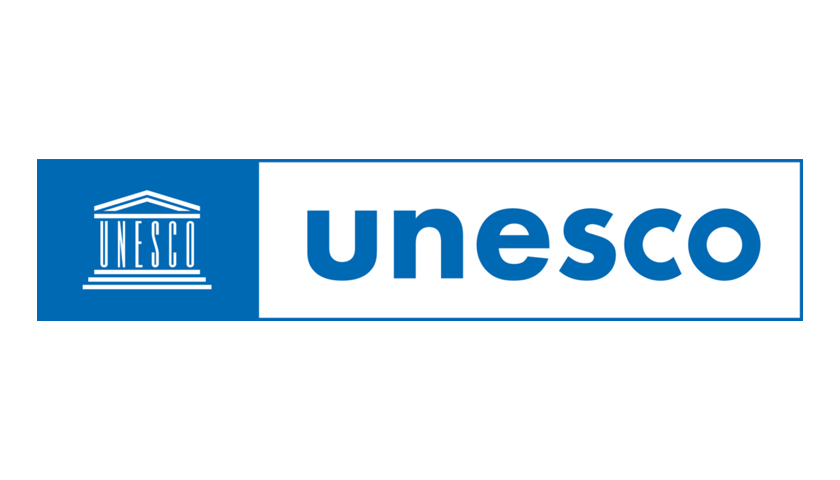Over the next few months, UNESCO will support over 40 local Ukrainian media with energy equipment and provide guidance on viable and sustainable business models and on audience engagement. Six Journalists Solidarity Centers will continue to provide safety training, psychological support and legal assistance to journalists. In addition, at least 200 journalists will receive financial assistance to continue practicing their profession. Such expanded support for Ukrainian media is made possible by a new project funded by the government of Japan.
UNESCO has been involved in critical emergency measures since the beginning of the war to promote the safety of journalists in Ukraine and to ensure that the population has access to lifesaving, humanitarian, and conflict-sensitive information.
In the face of sustained attacks on the energy infrastructure and frequent internet outages, printed newspapers are frequently the only source of information for the local population, particularly in frontline regions.
In November 2022, the local newspaper of Bakhmut printed its first edition since the beginning of the war.
The newspaper that I work for is 102 years old, I have worked there for 23 years. It is a family tradition – my father was a journalist for Vpered for 40 years. Today, this newspaper is worth more than bread. It is the only thing left of our city. My phone is my only tool to produce the paper.
Tatyana Postoeva Journalist at the newspaper “Vpered” in Bakhmut
After the discussion, Tatyana Postoeva received a laptop from UNESCO and NUJU, which will allow her to continue producing the newspaper, which is distributed by volunteers and citizens. Often, journalists provided crucial information for the evacuation efforts in the city.
Support to a pluralistic press and verified information can often save lives in this context, and the independent and professional media plays an important role in local communities.
On Thursday 6 April 2023, Matsuda Kuninori, Ambassador Extraordinary and Plenipotentiary of Japan to Ukraine, met with editors and journalists from Ukrainian media outlets close to the frontlines. They discussed their experiences and the daily challenges they face in keeping their media operational in the face of the war, as well as the impact of Japan’s support through UNESCO is having on the ground. This workshop marked the beginning of the project implementation and additional assistance by UNESCO to media and journalists with the support by the people of Japan.
Only when people know about the situation on the ground, when they are informed about humanitarian assistance, can the efforts that we as an international community undertake to support Ukraine be even more effective. That is why the support to local media outlets to ensure their continued existence and to promote the safety of journalists is so crucial.
Matsuda Kuninori Ambassador Extraordinary and Plenipotentiary of Japan to Ukraine
Fourteen months into the war, threats to journalists’ physical and psychological safety remain one of the most pressing challenges. The discussion also included coordinators from the National Union of Journalists of Ukraine (NUJU) network of six Journalists’ Solidarity Centres which is supported by UNESCO, Japan and the International Federation of Journalists (IFJ). Some of these Centres are located near the frontlines, such as Zaphorizhia and Dnipro. The network’s regional coordinators described the mental toll that working in such difficult environments can have on journalists and those who support them.
Natalia Nazarova is the coordinator of the Journalists’ Solidarity Centre in Dnipro. The center has received over 350 requests for assistance in the last months.
We have over 20 internally-displaced journalists in Dnipro – we try to assist them with employment, psychological support and legal assistance. For example, a small newsroom in Dnipro recently hired one of the displaced journalists from Bakhmut.
Natalia Nazarova Coordinator of the Journalists’ Solidarity Centre in Dnipro
To prevent post-traumatic-stress disorder (PTSD), burnout and mental health issues, the overall project funded by Japan places particular emphasis on providing psychological support to journalists, media workers and those who work to support them, including access to one-on-one psychological counselling, mental health capacity-building, a psychological helpline, and psychological retreats for journalists and media workers.
Overnight, many of you have become war reporters – reporting from the frontlines to ensure that all of us here and far most communities in the war frontline and in need of humanitarian aid, are informed about the realities of this war. You are steering your media outlets through these most difficult of times. UNESCO’s support through the network of six Journalists’ Solidarity Centres is part of our larger efforts to assist Ukraine’s diverse and pluralistic media landscape. We are implementing this project through ten different specialized partners. Thanks to the support of Japan, we are able to further upscale and intensify our activities, including through trainings on conflict-sensitive reporting and psychological assistance.
Chiara Dezzi Bardeschi UNESCO Representative to Ukraine
The exchange took place in the Journalists Solidarity Centre in Kyiv.
The National Union of Journalists of Ukraine invited to this roundtable journalists who have great courage and work on the front lines. We brought together colleagues who restarted their media and gathered today to discuss current issues of Ukrainian journalists and the support to the Journalists’ Solidarity Centres by UNESCO and the people of Japan.
Sergiy Tomilenko President of the National Union of Journalists of Ukraine
